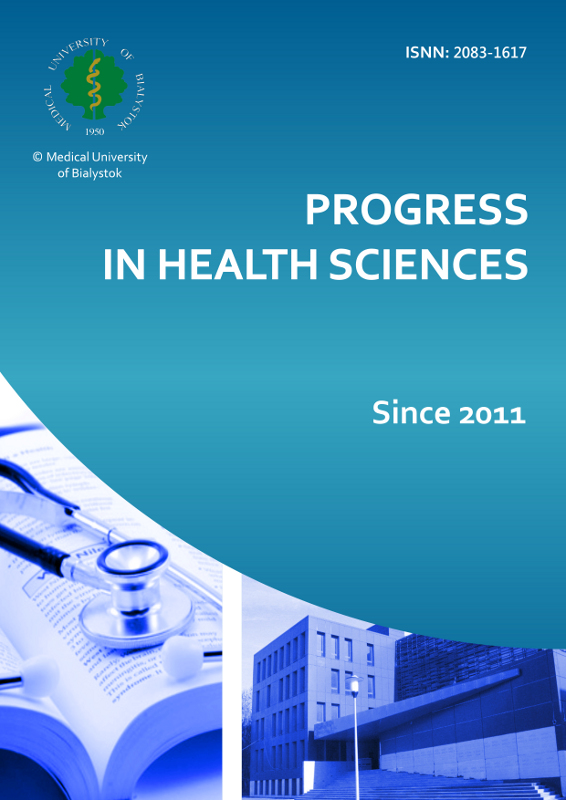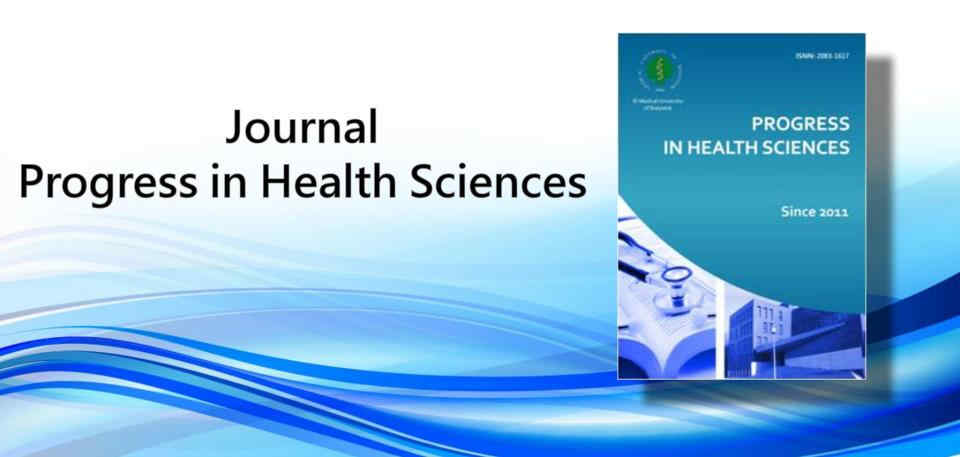All authors and reviewers should read and familiarize themselves with Progress in Health Sciences - Publication Ethics and Publication Malpractice Statement.
Publication Ethics and Publication Malpractice Statement
Progress in Health Sciences’ Publication Ethics and Publication Malpractice Statement is based on the guidelines and standards developed by the Committee on Publication Ethics for Journal Editors.
RESPONSIBILITIES OF AUTHORS
Authors of reports of original research should present an accurate account of the work performed as well as an objective discussion of its significance. Underlying data should be represented accurately in the paper. A paper should contain sufficient detail and references to permit others to replicate the work. Fraudulent or knowingly inaccurate statements constitute unethical behavior and are unacceptable.
An author should not publish manuscripts describing essentially the same research in multiple journals or publication venues. Such redundant publication is generally considered to constitute unethical publishing behavior, and if discovered may result in a manuscript under consideration being rejected, or a published article being retracted.
Authors of manuscripts reporting on original research should present an accurate account of the work performed, accompanied by an objective discussion of its significance. The manuscript should contain sufficient detail and references to permit others to replicate the work. The fabrication of results and the making of fraudulent or knowingly inaccurate statements constitute unethical behavior and may be cause for rejection or retraction of a manuscript or published article.
All authors should disclose in their manuscript any financial or other substantive conflict of interest that might be construed to influence the results or interpretation of their manuscript. All sources of financial support for the project should be disclosed.
Authors are responsible for obtaining written permission to include any images or artwork for which they do not hold copyright in their articles, or to adapt any such images or artwork for inclusion in their articles.
The authors’ names should be listed on the article in order of their contribution to the article, and all authors take responsibility for their own contributions. Only those individuals who have made a substantive contribution should be listed as authors; those whose contributions are indirect or marginal (e.g., colleagues or supervisors who have reviewed drafts of the work or provided proofreading assistance, and heads of research institutes/centers/labs) should be named in an “Acknowledgments” section at the end of the article, immediately preceding the Reference List.
When an author discovers a significant error or inaccuracy in his/her own published work, it is the author’s obligation to promptly notify the journal editor or publisher and cooperate with the editor to retract or correct the paper.
RESPONSIBILITIES OF REVIEWERS
Peer review assists the editor in making editorial decisions and through the editorial communications with the author may also assist the author in improving the paper.
Any manuscripts received for review must be treated as confidential documents. They must not be shown to or discussed with others except as authorized by the editor.
Reviews should be conducted objectively. Personal criticism of the author is inappropriate. Referees should express their views clearly with supporting arguments.
Reviewers perform work for the journal on a volunteer basis. Reviewers are free to decline invitations to review particular manuscripts at their discretion. They should also not accept manuscript review assignments for which they feel unqualified. Reviewers who have accepted manuscript assignments are normally expected to submit their reviews within three weeks.
When conducting their reviews, reviewers are asked to do so as objectively as possible, refraining from engaging in personal criticism of the author(s). They should always attempt to provide detailed and constructive feedback to assist the author(s) in improving their work, even if the manuscript is, in their opinion, not publishable.
Reviewers should identify in their reviews relevant published work that has not been cited by the author(s), together with any instances in which proper attribution of sources has not been provided. They should call to the responsible editor’s attention any major resemblances between a manuscript under consideration and other published articles or papers of which they are aware, as well as any concerns they might have in relation to the ethical acceptability of the research reported in the manuscript.
Privileged information or ideas obtained through peer review must be kept confidential and not used for personal advantage. Reviewers should not consider manuscripts in which they have conflicts of interest resulting from competitive, collaborative, or other relationships or connections with any of the authors, companies, or institutions connected to the papers.
RESPONSIBILITIES OF EDITORS
The Progress in Health Sciences Editor has responsibility for deciding if a manuscript submitted to Progress in Health Sciences should be published, and in doing so is guided by the journal’s policies as determined by the Progress in Health Sciences editorial board and constrained by such legal requirements as shall then be in force regarding libel, copyright infringement, and plagiarism. The Editor may consult with the Associate Editor and other members of the editorial team, as well as with reviewers, in making publication decisions.
The editors will evaluate manuscripts for their intellectual content without regard to the race, color, gender, sexual orientation, religious beliefs, ethnic origin, citizenship, or political philosophy of the author(s). They will not disclose any information about a manuscript under consideration to anyone other than the author(s), reviewers and potential reviewers, and in some instances the Progress in Health Sciences editorial board members.
When evaluating a manuscript for publication, in addition to considering standard criteria pertaining to the rigor of the manuscript, the quality of its presentation, and its contribution to humanity’s stock of knowledge, the editors will also seek evidence that ethical harms have been minimized in the conduct of the reported research. Progress in Health Sciences welcomes the submission of manuscripts from any country, it is necessary to recognize that laws and regulations regarding research ethics and ethical approval vary worldwide. As such, the editors may need to seek clarification in this regard with the author(s) and request that they supply a letter from the relevant institutional ethics committee or board that approved the research.
Unpublished materials disclosed in a submitted manuscript must not be used in an editor's own research without the express written consent of the author.
STUDIES INVOLVING HUMANS
For manuscripts reporting medical studies involving human participants, authors must provide a statement identifying the ethics committee that approved the study, and that the study conforms to recognised standards as described in the Declaration of Helsinki (http://www.wma.net/en /20activities/10ethics/10helsinki/)
STUDIES INVOLVING ANIMALS
Manuscripts dealing with any experimental work on animals should meet the relevant regulations or requirements imposed by the institutional or governmental authorities. Experimental animals must be handled in accordance with the authors’ institutional guidelines.



